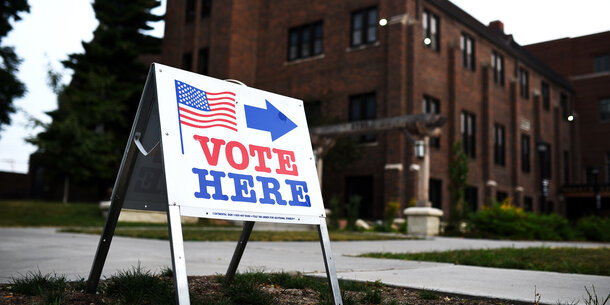Today, the Legal Defense Fund (LDF), American Civil Liberties Union of Florida (ACLU Florida), the Brennan Center for Justice at NYU School of Law, and the American Civil Liberties Union Voting Rights Project (ACLU) released a new resource for lawyers and advocacy groups to help Floridians with past felony convictions determine their eligibility to register and vote.
“Voting with a Criminal Record in Florida: What You Need to Know,” written by voting and civil rights attorneys and policy experts, is meant for lawyers and advocacy experts looking to navigate Florida’s complex legal landscape for voting created by the dual passage of the Voting Restoration Amendment (Amendment 4), in 2018, and the state’s subsequent adoption, in 2019, of Senate Bill 7066 (SB 7066). The State of Florida has been repeatedly asked to provide the kind of guidance in “Voting with a Criminal Record in Florida” but has thus far failed, leading to dire consequences, including the prosecution of individuals for trying to exercise their right to vote following the passage of Amendment 4.
"The State of Florida continues to make it exceedingly difficult to obtain basic information a person needs to be able to determine their ability to register and vote,” the resource notes. “Different elections officials and clerks’ offices have different policies based on varying interpretations and understandings (sometimes clear misunderstandings) of the applicable laws and policies.”
The resource is not intended for the general public and should not be relied upon as legal advice. It should be used in consultation with a lawyer or another expert who is able to interpret Florida’s voting rules, and it is intended to serve as a starting point for assisting a returning citizen with determining whether they are eligible to register and vote.
Most recently, the state attorney for Florida’s Eighth Judicial Circuit is prosecuting at least 10 people with past convictions for registering and voting in the 2020 elections while allegedly owing court fines and fees. But often people don’t know they owe money, and even if they do, they may not be aware that paying off “legal financial obligations” – certain fines, fees, court costs, and restitution – is a precondition to voting. The state also doesn’t keep centralized records or a database for tracking such debt or payments, often making it nearly impossible for people with past convictions, county officials, and the state itself to figure out who’s eligible to vote.
The State of Florida has made it nearly impossible for many of its citizens to determine if they are eligible to vote, and—rather than assist those individuals—has resorted instead to prosecution.
The resource outlines a detailed, six-step process for determining someone’s eligibility to register and vote under Amendment 4 and SB 7066:
- Obtain the docket sheet and judicial/sentencing documents for each criminal conviction.
- Determine the basic facts about each conviction.
- Determine the terms of sentence for each conviction.
- Determine whether the State of Florida considers the sentence “completed” for purposes of voting.
- Next steps if a person’s voter registration is rejected or they get a notice that they’re ineligible after registration.
- Consult dedicated organizations for further assistance, including the Florida Rights Restoration Coalition and the League of Women Voters of Florida.
In addition to the full resource, the partner organizations have produced a one-page reference guide summarizing Florida’s voter eligibility rules for citizens with past convictions (either in Florida or elsewhere).
Download the full resource here and the one-page guide here.




